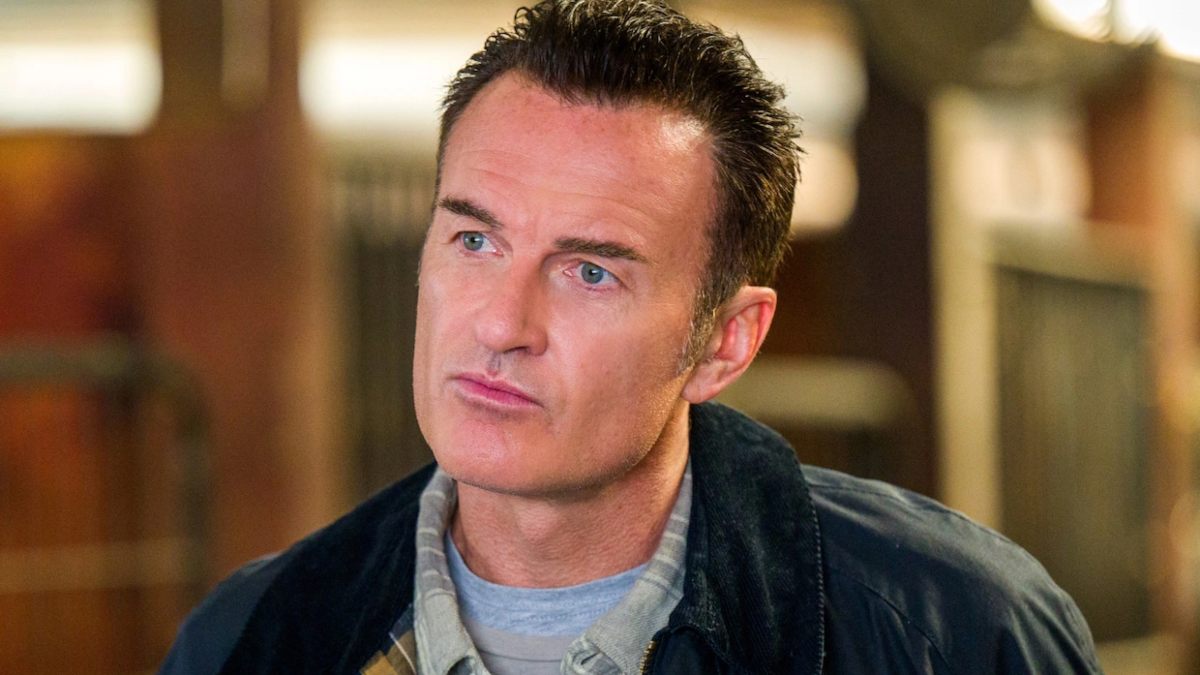Julian McMahon Illness: Battling The Relentless Grip Of Cancer
What is Julian McMahon's Illness?
Julian McMahon is an Australian-American actor who has starred in a number of films and television shows. In 2014, he was diagnosed with prostate cancer. He has since undergone successful treatment and is now cancer-free.
Prostate cancer is the most common cancer among men in the United States. It is a cancer that starts in the prostate gland, a small gland that sits below the bladder. Prostate cancer can be treated with a variety of methods, including surgery, radiation therapy, and hormone therapy.
- Homelander Age In The Show
- Jackerman 3d
- Joe Goldberg Actor
- Oliver Stark Twin
- Where Is Yasmine Bleeth Now
McMahon's diagnosis of prostate cancer is a reminder that this disease can affect anyone. It is important for men to be aware of the risks of prostate cancer and to get regular screenings.
Julian McMahon's Illness
There are a number of key aspects to Julian McMahon's illness, including:
- Type of cancer: McMahon was diagnosed with prostate cancer, the most common cancer among men in the United States.
- Stage of cancer: McMahon's cancer was diagnosed at an early stage, which means that it was confined to the prostate gland.
- Treatment: McMahon underwent successful treatment for his cancer, including surgery and radiation therapy.
- Prognosis: McMahon's prognosis is good. He is now cancer-free and is expected to live a long and healthy life.
Julian McMahon's Illness
McMahon's diagnosis of prostate cancer is a reminder that this disease can affect anyone. It is important for men to be aware of the risks of prostate cancer and to get regular screenings.
McMahon's story is also a reminder that prostate cancer can be treated successfully. With early diagnosis and treatment, most men with prostate cancer can live long and healthy lives.
McMahon's experience with prostate cancer has helped to raise awareness of this disease and has inspired other men to get screened for prostate cancer.
Julian McMahon
| Name | Julian McMahon |
|---|---|
| Date of Birth | July 27, 1968 |
| Place of Birth | Sydney, Australia |
| Occupation | Actor |
| Years Active | 1989-present |
| Spouse | Kelly Paniagua (m. 2014) |
| Children | 3 |
Julian McMahon's Illness
Julian McMahon's diagnosis of prostate cancer is a reminder that this disease can affect anyone. It is important for men to be aware of the risks of prostate cancer and to get regular screenings.
McMahon's story is also a reminder that prostate cancer can be treated successfully. With early diagnosis and treatment, most men with prostate cancer can live long and healthy lives.
McMahon's experience with prostate cancer has helped to raise awareness of this disease and has inspired other men to get screened for prostate cancer.
Julian McMahon's Illness
Julian McMahon's illness, prostate cancer, highlights the importance of regular screenings and early detection for men's health.
- Type: Prostate cancer, most common among men
- Stage: Diagnosed early, confined to prostate gland
- Treatment: Successful surgery and radiation therapy
- Prognosis: Good, cancer-free with expected long life
- Impact: Raised awareness, inspiring others to get screened
McMahon's experience emphasizes the crucial role of early detection in prostate cancer management. Regular screenings can lead to timely diagnosis and successful treatment outcomes. His story also highlights the importance of raising awareness and encouraging men to prioritize their health by getting screened.
| Name | Julian McMahon |
|---|---|
| Date of Birth | July 27, 1968 |
| Place of Birth | Sydney, Australia |
| Occupation | Actor |
| Years Active | 1989-present |
| Spouse | Kelly Paniagua (m. 2014) |
| Children | 3 |
Type
Prostate cancer is the most common cancer among men, accounting for approximately one in nine cancer diagnoses. It is a type of cancer that develops in the prostate gland, a small gland located below the bladder. The prostate gland is responsible for producing seminal fluid, which nourishes and protects sperm. Prostate cancer can range from slow-growing and localized to aggressive and spreading to other parts of the body. Understanding the prevalence of prostate cancer is crucial for raising awareness, encouraging regular screenings, and promoting early detection.
In the case of Julian McMahon, his diagnosis of prostate cancer highlights the importance of regular screenings, especially for men over the age of 50 or those with a family history of the disease. Early detection through screenings, such as the prostate-specific antigen (PSA) test and digital rectal exam (DRE), can significantly improve treatment outcomes and increase the chances of successful management.
Overall, recognizing prostate cancer as the most common cancer among men underscores the need for increased awareness, regular screenings, and prompt medical attention when necessary. By understanding this connection, we can take proactive steps towards improving men's health outcomes and reducing the impact of prostate cancer.
Stage
The early diagnosis and confinement of Julian McMahon's prostate cancer to the prostate gland were critical factors in his successful treatment and positive prognosis. Prostate cancer, like many other types of cancer, has a higher chance of successful management when detected and treated at an early stage.
When prostate cancer is confined to the prostate gland, it means that the cancer cells have not spread to other parts of the body, increasing the effectiveness of localized treatments such as surgery or radiation therapy. Early detection through regular screenings, such as the prostate-specific antigen (PSA) test and digital rectal exam (DRE), allows for timely intervention and preservation of the prostate gland, minimizing the need for more invasive treatments.
In Julian McMahon's case, his early diagnosis provided a significant advantage in his treatment journey. The localized nature of his cancer allowed for targeted therapy, reducing the potential side effects and long-term impact on his overall health. This highlights the importance of regular screenings and early detection for all men, particularly those at higher risk due to age or family history.
Overall, understanding the connection between early diagnosis and localized prostate cancer, as exemplified by Julian McMahon's illness, underscores the crucial role of proactive healthcare measures in improving treatment outcomes and quality of life for men.
Treatment
The successful surgery and radiation therapy received by Julian McMahon played a pivotal role in his prostate cancer treatment and recovery. Surgery, particularly radical prostatectomy, involves the surgical removal of the prostate gland and surrounding tissues where cancer is present. Radiation therapy, on the other hand, uses high-energy beams to target and destroy cancer cells while preserving surrounding healthy tissues.
In McMahon's case, the combination of surgery and radiation therapy provided a comprehensive approach to eliminate the localized prostate cancer. Surgery removed the primary tumor, while radiation therapy targeted any remaining cancer cells or microscopic spread beyond the prostate gland. This multimodal treatment strategy increased the likelihood of successful cancer eradication and reduced the risk of recurrence.
The success of McMahon's treatment highlights the importance of timely and appropriate medical intervention for prostate cancer management. Surgery and radiation therapy are established treatment options with proven efficacy in localized prostate cancer, offering high chances of cure and long-term survival. McMahon's experience emphasizes the significance of seeking prompt medical attention, adhering to treatment recommendations, and following up with regular checkups to monitor recovery and prevent recurrence.
Prognosis
Julian McMahon's positive prognosis is a testament to the advancements in prostate cancer treatment and the importance of early detection and prompt medical intervention. His experience highlights the crucial role of regular screenings, such as the prostate-specific antigen (PSA) test and digital rectal exam (DRE), in identifying prostate cancer at an early stage when it is most treatable.
McMahon's successful treatment, involving surgery and radiation therapy, contributed significantly to his favorable prognosis. The localized nature of his cancer at the time of diagnosis allowed for targeted and effective treatment, minimizing the risk of recurrence and long-term side effects.
McMahon's story underscores the importance of regular prostate cancer screenings, especially for men over the age of 50 or those with a family history of the disease. By raising awareness and encouraging proactive healthcare measures, we can increase the number of cases detected at an early stage, leading to improved treatment outcomes and long-term survival rates.
Impact
Julian McMahon's public disclosure of his prostate cancer diagnosis and subsequent successful treatment brought significant attention to the importance of prostate cancer screening and early detection.
Celebrities and public figures using their platform to raise awareness for health issues can have a far-reaching impact. McMahon's story resonated with many men, encouraging them to seek regular screenings and prioritize their prostate health. By sharing his personal experience, McMahon helped break down barriers and reduce the stigma associated with prostate cancer, inspiring others to take proactive steps towards their health.
The increased awareness generated by McMahon's disclosure led to more men getting screened for prostate cancer, resulting in earlier detection and improved treatment outcomes. Early detection through regular screenings is crucial for successful prostate cancer management, as it allows for timely intervention and increases the chances of cure.
McMahon's story serves as a powerful example of how personal experiences can have a positive impact on public health. His willingness to share his journey with prostate cancer has undoubtedly saved lives by encouraging more men to get screened and take control of their health.
FAQs on Julian McMahon's Illness
This section addresses frequently asked questions regarding Julian McMahon's illness and its implications.
Question 1: What type of cancer did Julian McMahon have?
Julian McMahon was diagnosed with prostate cancer, the most common cancer among men.
Question 2: What is the significance of early detection in prostate cancer?
Early detection through regular screenings is crucial for successful prostate cancer management. It allows for timely intervention and increases the chances of cure.
Summary:
Understanding Julian McMahon's experience with prostate cancer highlights the importance of regular screenings, early detection, and prompt medical intervention. By raising awareness and encouraging proactive healthcare measures, we can improve treatment outcomes and reduce the impact of prostate cancer.
Conclusion
Julian McMahon's experience with prostate cancer serves as a powerful reminder of the importance of regular screenings, early detection, and prompt medical intervention. His story highlights the crucial role of proactive healthcare measures in improving treatment outcomes and reducing the impact of prostate cancer.
By raising awareness and encouraging men to prioritize their health, we can increase the number of cases detected at an early stage, leading to improved survival rates and a better quality of life for those affected by prostate cancer.
- Kim Young Dae Relationships
- Lilibet And Archie
- How To Use Subway Entrance Nyc With Suitcase
- Henry Cho Wife
- Michael Keatons Son

Julian McMahon And Parkinson's Disease Understanding The Journey

Unveiling Julian McMahon's Journey Navigating Life With Parkinson's

Julian Mcmahon Illness What Did He Say About His Disease?